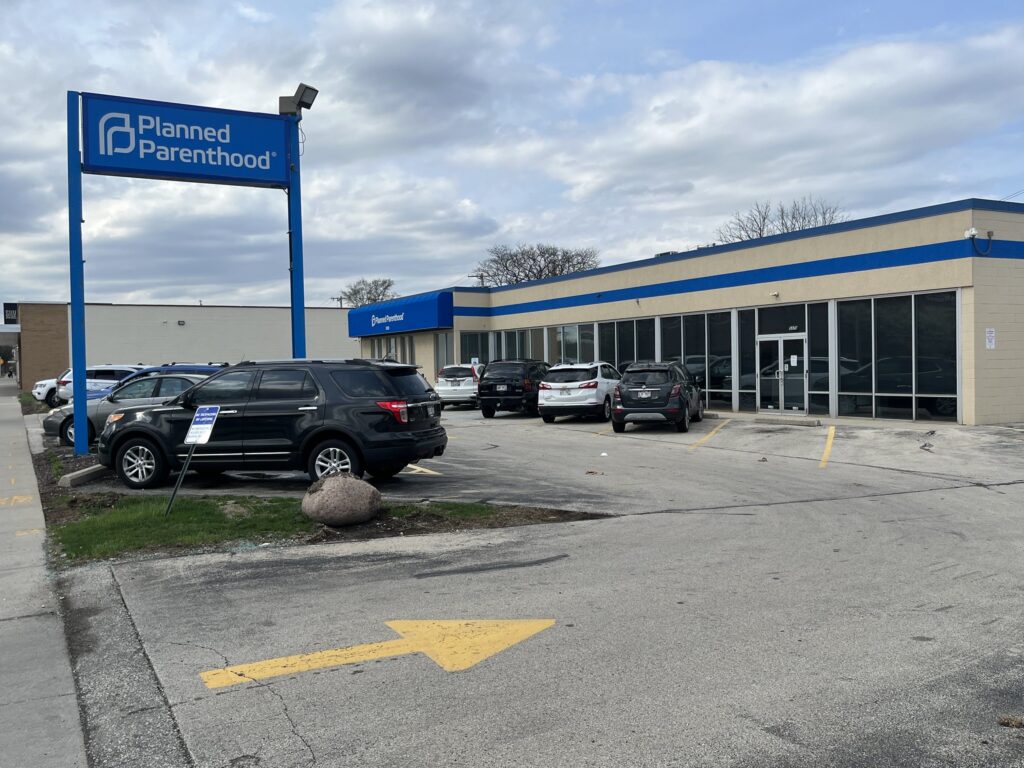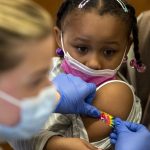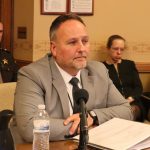What Wisconsin Women Seeking Abortion Need to Know
Despite state abortion ban, there are some organizations that will help.

The Northwest Health Center, located at 5380 W. Fond Du Lac Ave., is one of five Planned Parenthood clinics in Milwaukee still providing a range of reproductive and sexual health services. Photo by Devin Blake/NNS.
Wisconsin is one of several states that has a near-complete ban on abortion services.
But this does not mean that women have no options.
Knowing what’s available is particularly important in cities like Milwaukee, which has a majority-minority population. Data shows that women of color are disproportionately affected by abortion bans.
Here’s what you need to know
What’s happening
The latest wrinkle in the nation’s abortion wars involves access to mifepristone, part of the regimen for the so-called abortion pill. After rulings by a federal judge in Texas, the U.S. Supreme Court in April stayed – for now – the restrictions on the drug.
This effectively returns the case to the 5th Circuit to continue with the appeal process. If the 5th Circuit ultimately upholds the Texas court’s decision in another ruling, mifepristone will be taken off the market entirely.
If that occurs, options will still exist for Wisconsin women. The big problem: They will exist out of state.
The background
The U.S. Supreme Court’s decision in Dobbs v. Jackson Women’s Health Organization in June 2022 overturned the 1973 decision in Roe v. Wade, which provided constitutional protection for abortion in all 50 states.
The only scenario in which a provider can carry out an abortion in Wisconsin, under this law, is to save the life of the mother.
The law, however, prohibits providers in Wisconsin from carrying out an abortion but does not prohibit women in Wisconsin from getting an abortion, said Michelle Velasquez, director of legal advocacy services at Planned Parenthood of Wisconsin.
Women in Wisconsin can still legally get an abortion – through an in-clinic procedure and medication – in another state where it is legal. For many, that will be Illinois.
An unequal burden
Banning abortions and narrowing access to abortions affects women of color more than white women because, according to an analysis of data from 2019 by The Henry J. Kaiser Family Foundation, over half of abortions are received by women of color.
The Kaiser Family Foundation is a nonprofit organization that conducts health care research and provides health policy analysis.
A ban or narrowing will also worsen health care disparities that are largely due to race “because of all of the racism within the health care system and the lack of access to health care,” Velasquez said.
There are already stark racial disparities in, for example, maternal and infant health, which may widen if access to abortion services is further limited.
“The most marginalized people are the most affected by abortion bans,” Velasquez said.
Challenges for low-income women
There also are clear burdens on low-income women created by a ban on or narrowing of access to abortion services.
For Wisconsin women who travel out of state for abortion services, there are associated costs, including travel costs, lodging, child care for women who have other children and the cost of the procedure or medication, said Lexy Ware, call line coordinator for Pregnancy Options Wisconsin: Education, Resources and Support, or POWERS.
POWERS is an organization that offers resources and advocates for pregnant women throughout Wisconsin.
Resources
Pregnancy assessment and ultrasound dating are available at Planned Parenthood’s Water Street location in Milwaukee. These can be arranged with the help of an abortion patient navigator or scheduled online.
Follow-up appointments, for family planning and evaluation of the procedure, can also be scheduled.
Navigators can be called at 414-289-3002 or emailed at abnav@ppwi.org.
POWERS also can help in making out-of-state appointments as well as with connections to affiliated organizations that help with logistics and funding.
To contact POWERS staff, call or text 608-514-1714.
A national directory of abortion providers also is available from Power to Decide, an organization that provides research and resources for sexual and reproductive health throughout the country.
What Wisconsin women who seek abortion services need to know was originally published by the Milwaukee Neighborhood News Service.





















Appalling. Wisconsin women are treated unequally and denied life changing bodily autonomy. It’s a travesty. Religion has no place in this type of legislation.